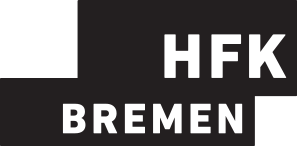Additional Information for *Block* Media Design Courses
Luiza Prado + Pedro Oliveira: Of Things that Do Not Belong – The Politics and Poetics of Estrangement
- Media Design/Special Topic in Digital Media
- M-MD + M-MA-2(MD) + B-MA-2(MG)
- block course please register by sending an email to Dennis Paul <> until 20.10.2014
- dates will be negotiated with lecturers
Public spaces are systems, constructed for things and people to fit in. Whenever these systems are upset by glitches that expose faults in its structures, reveal the fragility of its foundations, crack its thin, protective walls, said glitches are immediately alienated, excluded or confined to the farthest corners of society. Within those glitches, combinations of nationality, gender, race, class, language fluency and economic power form an unsettling recipe for the interplay of social friction. In this block seminar we will assess and discuss spaces where estrangement is negotiated and explore the poetics and politics of otherness and alienation. Who is welcome and who is undesirable? Who and what belongs to certain social spaces, and who and what do not? In order to explore these and other related questions we will observe a few snapshots of a possible future and then delve into the borders of the plausible, the preferable and the probable. We will write short stories, develop systems, imagine public policies, speculate on rituals, scenarios, sounds, neighbourhoods and objects that inhabit an alternative present, a micro- world of permanent estrangement. In this world, mere “uncanny” things do not fit anymore – we will talk about exclusion, ghettoisation, gentrification and oppression, and hence explore the boundaries and breaking points of speculative practices.
Nele Brönner + Willy Sengewald: The New Cairo Case
- Media Design/Special Topic in Digital Media
- M-MD + M-MA-2(MD) + B-MA-2(MG)
- block course please register by sending an email to Dennis Paul <> until 20.10.2014
- dates will be negotiated with lecturers
Vast Regions and Confined Spaces The design of a building is also the design of its ruin. The draft is the blueprint for its use, its modification and its exploitation. In our talk, we will engage with two development projects, that seem very far apart at first glance, but have a lot in common, when looking closely. In a simultaneous seminar at the University of the Arts Bremen and German University New Cairo City, we will intervene into the adamant schemes of planners and investors. Through means of design, depiction and intervention, alternative endings to the tale of construction will be created. In the middle of the desert a new city is being built. A clean retreat, ordered and well-organized. It shall house two million people — splendid parks, universities and malls, luxurious family homes, guarded apartment buildings and resorts. We will call it “Lake View”, “Arabella Park”, “Le Rêve”. Whose dream are we dreaming? The effect of the grid is always to say that something is this, not that; that it belongs here, not there. Deleuze and Guattari identify the town as force of striation upon countryside. Yet the endeavour to discipline space inevitably reveals its potential for insubordination. Smooth space in contrast to the striated, is occupied by intensities and events. It is haptic rather than optic. for additional information please visit cairo.thegreeneyl.com
Ralf Baecker: Aesthetics of Emergence
- Media Design/Special Topic in Digital Media
- M-MD + M-MA-2(MD) + B-MA-2(MG)
- block course please register by sending an email to Dennis Paul <> until 20.10.2014
- dates will be negotiated with lecturers
Emergence is defined as a phenomena which cannot be explained by the mere analysis of its parts or conforming elements. To witness emergence a system has to run. Emergent behaviour can be found in biology, physics, chemistry and in social or computational systems. Examples are the flocking behaviour of birds, the Belousov–Zhabotinsky reaction in chemistry and self-organising maps in computation. The aim of the workshop is to explore notions of emergence in context of an artistic production. Emergent technological systems tend to have life like behaviour. The workshop will give a short introduction into the topic and relevant technological and artistic concepts. In the practical oriented second phase we will build individual or group based emergent objects, software or installations. The module will be held as a workshop (8 days) after the lecture periode in feburary 2015. The workshop is also open to bachelor students.

